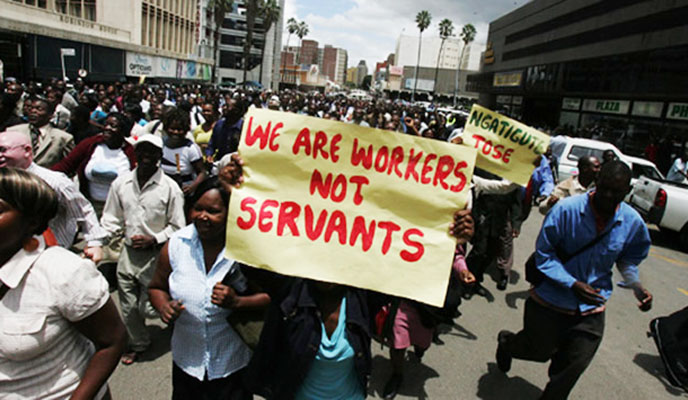
Civil servants through their supreme representative body, the Apex council, on Thursday rejected a 50 percent pay hike announced by the government as well as the US$75 Covid-19 allowance saying the two packages were not a product of inclusive negotiations.
By Brenna Matendere
On Wednesday Finance minister Mthuli Ncube announced that civil servants would start receiving pay hikes of 50 percent starting this month and an untaxed US$75 allowance for the next three months.
Presidential spokesperson George Charamba also immediately announced on micro blogging site Twitter that the forex payments would not be received in cash form but on electronic cards to avoid feeding the black market in a development that started dampening spirits of the public workers.
In a statement on Thursday, the Apex council chairperson Cecilia Alexander effectively derailed government’s plans to please its restive workers by rejecting the offers on the basis the body was not consulted prior to the adjustments.
“Matters to do with conditions of service have to be a product of consultations between social partners at forums provided for at law. No party should unilaterally decide for others as is the case here,” said Alexander.
“Apex council stands by its position paper that it presented to the NJNC (National Joint Negotiating Council) demanding that salaries be paid in USD and that the figure be a product of negotiations.”
The Apex leader also pointed out that the US$75 allowance is “thumb-suck and not with our input” further urging government to call an emergency meeting to resolve the impasse.
- Chamisa under fire over US$120K donation
- Mavhunga puts DeMbare into Chibuku quarterfinals
- Pension funds bet on Cabora Bassa oilfields
- Councils defy govt fire tender directive
Keep Reading
She said Apex council was happy that it had finally dawned on the government which previously insisted on the sole use of the moribund Zimbabwean dollar currency, that the economy had actually dollarised.
“… the civil service Apex council appreciates the government’s efforts to address the plight of its workers, and the acknowledgement though belated, that the economy has dollarised and so should salaries. This, therefore, buttresses our call for an urgent NJNC to deliberate on salaries and conditions of workers in order to co-own the outcomes as demanded for at the law,” said Alexander.
Teachers also reiterated that they reject the Government offer.
In an interview with NewsDay, Takavafira Zhou, the Progressive Teachers Union of Zimbabwe (PTUZ) president said: “The real challenge is the callous reduction of salaries from US dollar to local currency. Teachers who were earning US$550 have been reduced to US$34 and even the 50% salary increase is a drop of water in an ocean and will fundamentally keep teachers in poverty and penury.”
Civil servants and the government have often bickered over salaries, with solutions often being said to be piecemeal.
Nurses said they were incapacitated and were withdrawing their services, as the fallout over eroded wages deepened.











